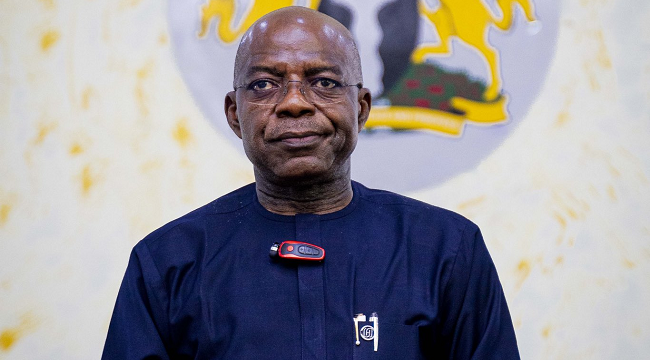News
Governor Alex Otti’s Debt Repayment Claim: A Call for Transparency in Abia State’s Financial Management By: Prof. Ndukwe Anya

Governor Alex Otti’s recent declaration of paying N90 billion Naira of the N191 billion Naira debt inherited from the previous administration under Okezie Ikpeazu has sparked interest and discussion across Abia State. This news, while promising relief from a heavy debt burden, raises several questions critical to understanding the financial strategies, priorities, and economic health of the state.
Governor Otti’s claim is notable for Abia State, given the scale of the debt. If verified, reducing the debt by nearly half in such a short time would indicate a major financial undertaking. However, the claim leaves several essential questions unanswered.
1. How Was the N90 Billion Sourced?
A key question for citizens and analysts alike is the source of the funds used for this debt repayment. Given Abia State’s low Internally Generated Revenue (IGR)—one of the lowest per capita in the country at N3,462, below the national average of N4,616—understanding the funding source is critical. Did the repayment come from IGR, federal allocations, or external borrowing? Each source has different implications for the state’s financial health and sustainability. If federal allocations or other one-off funds were used, this repayment may not signal long-term fiscal health, whereas if the funds were drawn from IGR, it could indicate a significant restructuring of Abia’s revenue system.
2. Which Banks Received the Payments?
Details about the banks involved in the debt repayment are also important for tracking and verifying the transaction. Knowing if the repayments were made to local or international banks could provide insight into the nature of Abia State’s debt obligations and any future financial commitments. This clarity would help create transparency around the type of debt that has been prioritized for repayment—whether short-term, long-term, or foreign debt—each carrying different financial implications.
3. How Will This Impact Abia State’s Economy?
Reducing the debt burden by N90 billion should, in theory, open up Abia State’s budget for investment in critical sectors. Given that the state has struggled with low economic output and infrastructure challenges, many citizens wonder whether this debt reduction will free up funds for essential services in education, healthcare, infrastructure, and economic development. How will the state’s improved fiscal situation affect its credit rating and future borrowing ability? Effective debt management could make Abia State a more attractive candidate for investment and potentially better loan terms, which could benefit the state’s long-term financial stability.
Abia State’s Economic Landscape
Context matters in evaluating this claim. Abia State has historically faced financial strain, with limited revenue streams and high debt per capita. Abia’s net debt per capita of N30,324 exceeds the national average of N27,316, reflecting the financial weight shouldered by its residents. With a lower-than-average IGR, the state has relied heavily on federal allocations and loans, which places it in a vulnerable position to accumulating more debt. For Otti’s administration, addressing this vulnerability will require more than just debt repayment—it will necessitate policies that increase revenue, reduce dependency on borrowing, and prioritize economic development.
Ensuring Transparency and Accountability
Given the importance of these claims, independent audits and the publication of financial statements are essential. Transparency will help the citizens of Abia understand the financial decisions of their government, build trust, and verify that these repayments have indeed reduced the state’s debt burden. Access to detailed records could also provide insights into Otti’s overall fiscal strategy and whether similar repayments might be prioritized in the future.
The Plan for the Remaining N101 Billion Naira Debt
Another pressing question is how Otti plans to manage the remaining N101 billion debt. Will debt repayment continue to be a priority? If so, what is the timeline for achieving a fully balanced budget? While debt repayment is commendable, Abia State’s development relies equally on investing in critical infrastructure and public services that fuel economic growth and improve the quality of life for its citizens. Achieving this balance is vital.
A Path Forward for Abia State
Governor Otti’s announcement has opened the door for potential financial transformation in Abia State, but it requires transparency, careful planning, and sustained commitment. For the state to achieve meaningful progress, Otti’s administration should not only continue with fiscal responsibility but also foster economic initiatives that increase IGR, reduce poverty, and create opportunities for the state’s residents.
As the administration moves forward, openness and accountability will be essential in ensuring effective resource allocation and promoting long-term economic growth. Governor Otti’s approach to debt management and his prioritization of transparency can serve as a model for governance, but the citizens of Abia must remain vigilant, engaged, and informed to ensure that these steps translate into tangible benefits for the state.
Prof. Ndukwe Anya Writes from Lagos

























